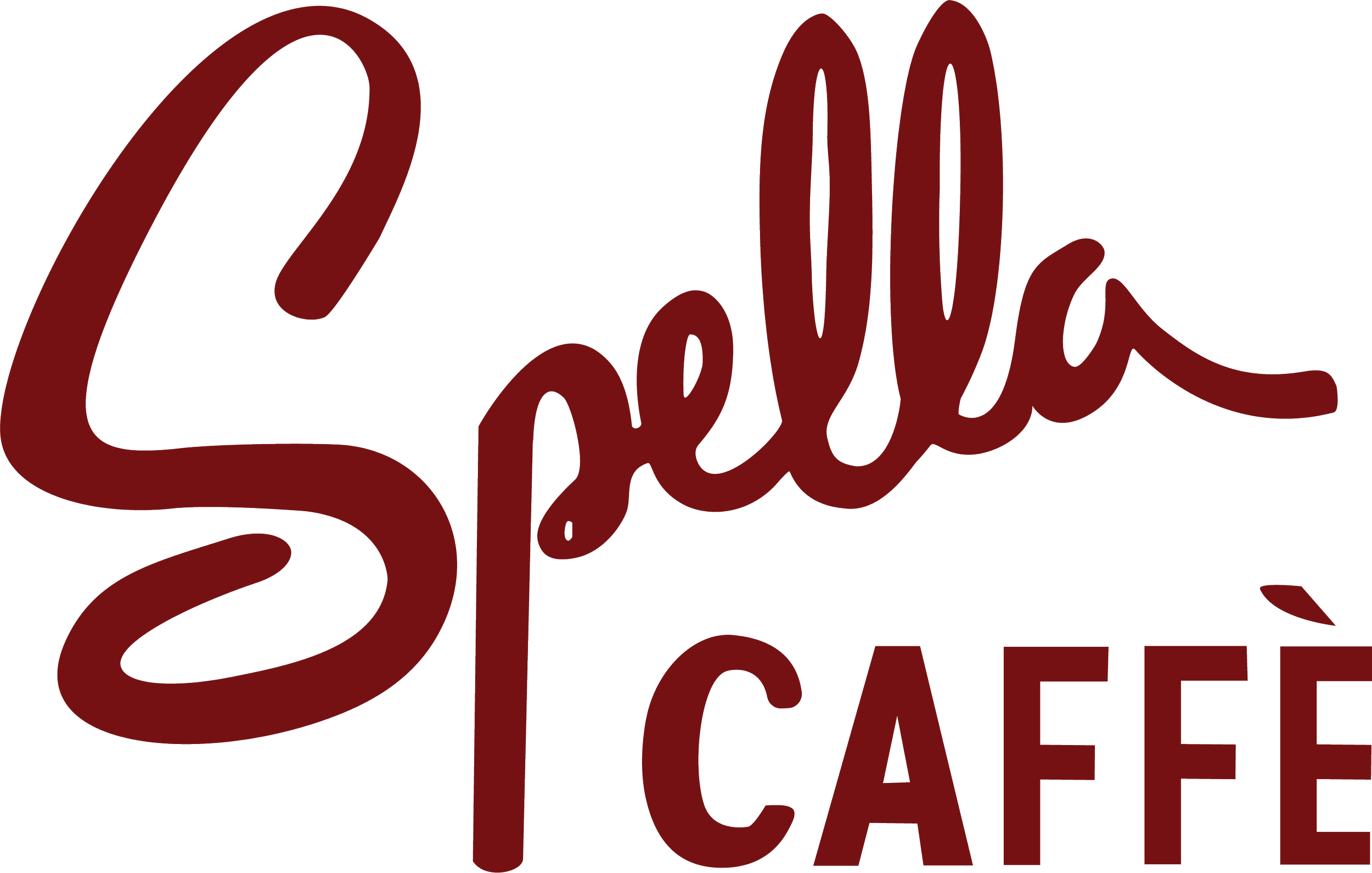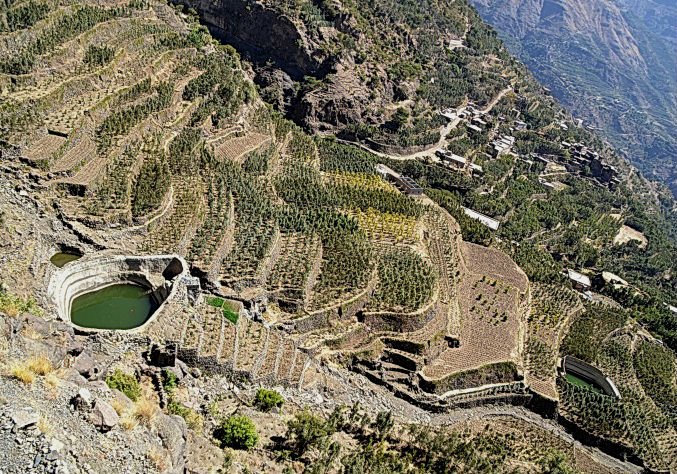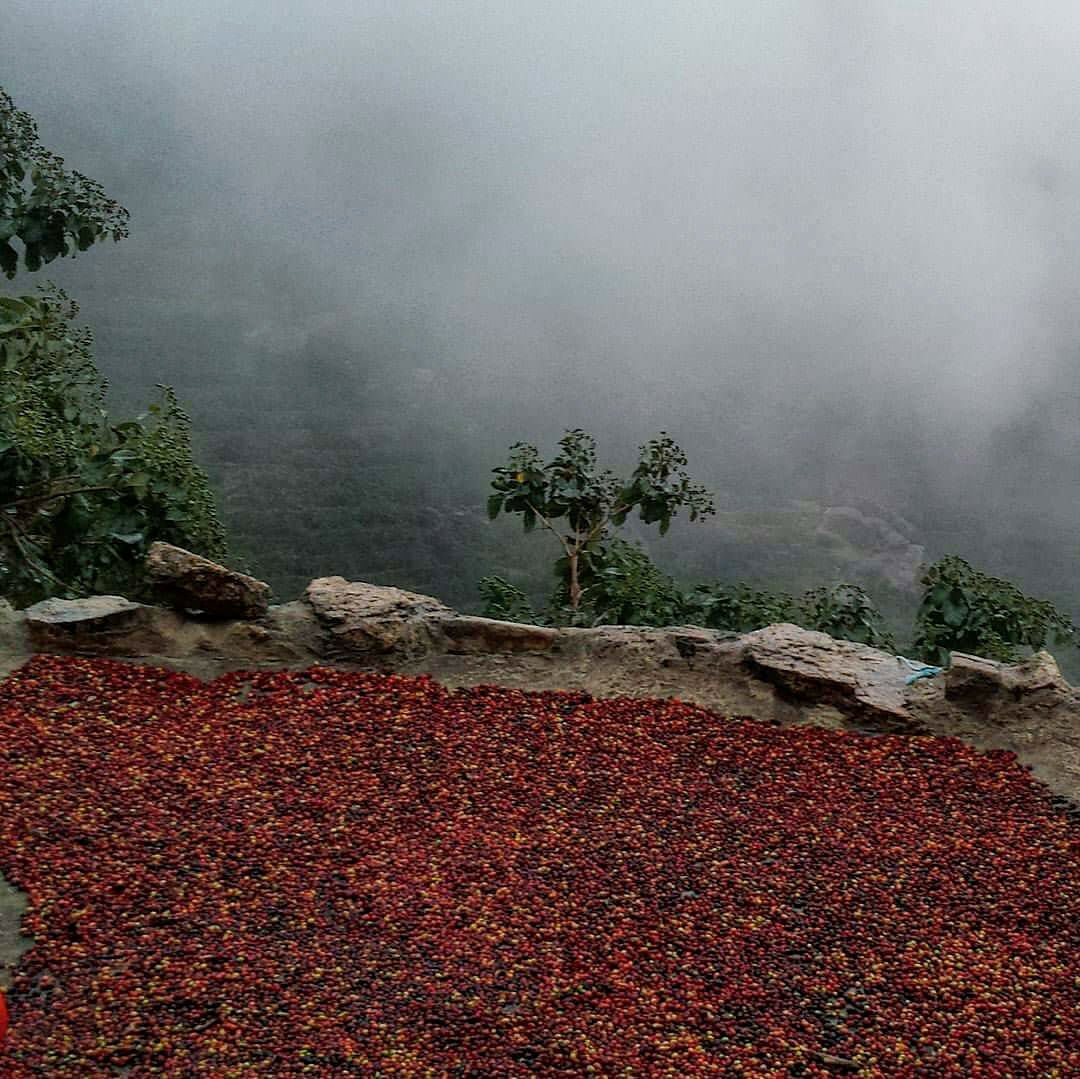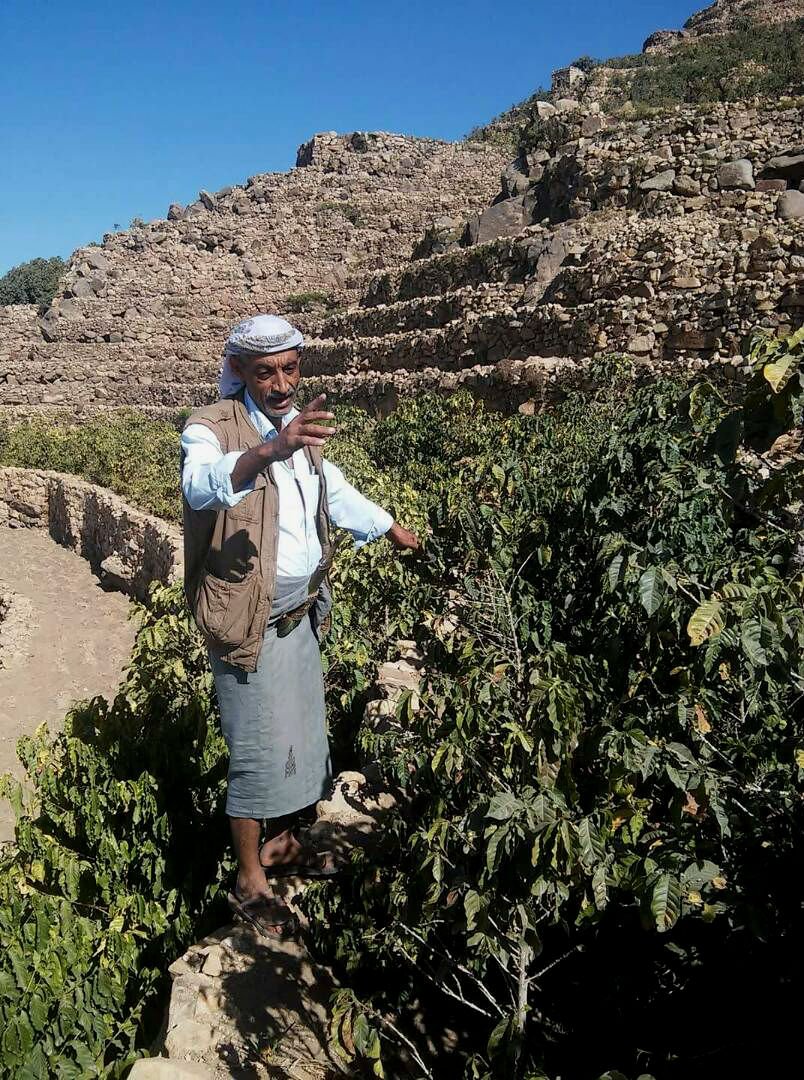The Yemen Mokka: A Tribute to Heritage & Culture
Imagine that you have traveled back in time to Yemen two centuries ago. You might notice the terraced farmland, steep slopes providing space for lovely coffee shrubs growing in dry, arid, sunny conditions. You might also notice the unique approaches to farming that have been passed down for generations: hanging ficus whose smoke is used to control insects from damaging the fruit and plants of the coffee shrubs, for instance. You can almost feel the warmth radiating from the sun, and the aromas coming from the soil and crops that were maintained for centuries.
And while it may be difficult to ignore the multi-faceted challenges faced by current-day Yemen, you might be surprised to know close to 100 family farms in the Hajjah region still maintain the ancient agricultural practices of coffee cultivation to produce a fruit of unparalleled flavor, texture, and quality.
We have a special coffee chosen by Andrea Spella who reveres family businesses, generational knowledge, heritage, specialization (so the best quality of an offering can come forward); and of course he looks for a certain delicious flavor and texture. Andrea chose the Yemen Mokka, also seen spelled as Mocca, Mocha, and Moka.
Recently, the Yemen crop was harvested over the Winter and we were fortunate to find ourselves with a small quantity to offer as one of our (soon to be) current selections.
What makes this particular Yemen coffee different?
Growing Conditions
Coffee grown in the high mountains of Yemen's northwestern Hajjah region offer a unique combination of history, tradition, and resilience. The crops harvested this past winter by small legacy farmers in the village communities of Bani Alawam and Mabyan is considered one of the best coffee beans in the country.
These coffee farms are carefully managed to ensure the survival of the coffee plants in the challenging climate. The Yemeni coffee trade is an important source of livelihood for over one million people, including the farmers, the miller, and exporter Pearl of Tehama.
Local Conditions
“Yemen continues to suffer from protracted conflict that has cost many lives and displaced over 3 million people. Two-thirds of the country is in need of food or medical aid, including 65% of coffee producers in the western highlands. So, when a new crop arrives we pause to remember and honor the coffee. What makes the quality so special is that it hinges on a relationship of trust, which has been constant for decades between Royal and the Muslot family despite many odds.”
The Hajjah Region
Located in Northwestern Yemen
The Hajjah Region
What makes Hajjah a region that produces some of the highest quality is the standards of processing they have applied. From the rooftop gardens of ancient buildings to the raised beds outfitted with screens for even air circulation, the Yemen Mokka is a celebration of the beauty and complexity of the coffee-making process. Once processed, the coffee beans are put in Ecotact bags that preserve its freshness much longer than typical coffee bags as it makes its journey of making its way to the states.
Flavor and Brewing Methods
The Yemen Mokka is a rare and coveted coffee bean!
The most authentic way to revere and respect the coffee is through the Arabic/Turkish coffee method, using an ibrik, briki, cezve, cezva (a maker of many names!).
This new crop is a delicious, textural emulsion bomb as an espresso with crazy amounts of luxurious crema. Flavors of fig, dates, and bittersweet chocolate tart come forward with a large body and satisfying chewiness.
It makes a deep, rich, earthy pour-over reminiscent of chocolate cream pie, Italian drinking chocolate, and almond nougat.
Let’s not forget Mokka in the Moka..pot!
This coffee is also unique because of how it becomes better with age, almost like a fine wine. Andrea thinks of it as the Everlasting Gobstopper of coffee; its flavor keeps developing well-past the freshness dates of many other coffees and continues to produce something delicious and surprising each day.
Even after 25 days past the roast date, the Yemen Mokka has produced some of the best espresso shots the folks at the roaster have ever tasted.
Conclusion
There is something undeniably special about the Yemen Mokka that goes beyond just its flavor and body. It is a connection to a place and a culture: a reminder to honor the human story behind the bean - the farmers, the millers, and the exporters who make it possible for us to enjoy its flavor and richness on our own soil.
How to Purchase This Extraordinary Coffee
We are accepting preorders for Yemen online, it will be roasted as demand comes in. Each roast produces 10 half pound bags.
Please email us at spella@spellacaffe.com with any questions or if you would like to add other beans to your Yemen order to be shipped out all at once.




